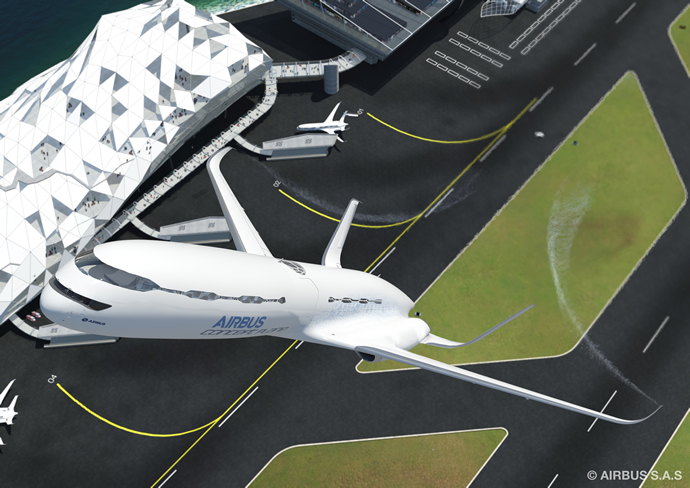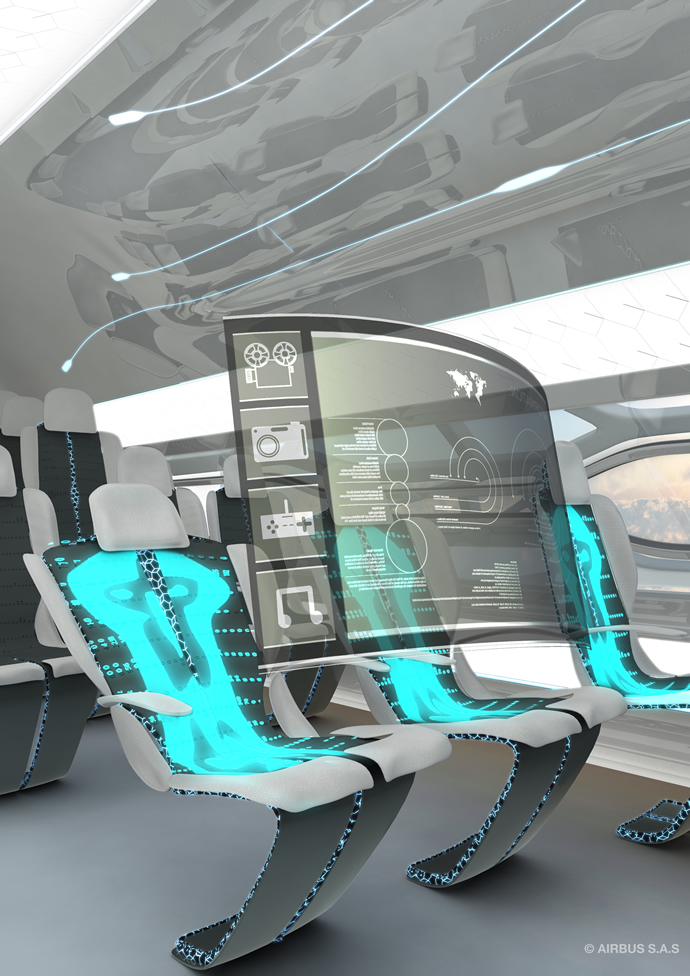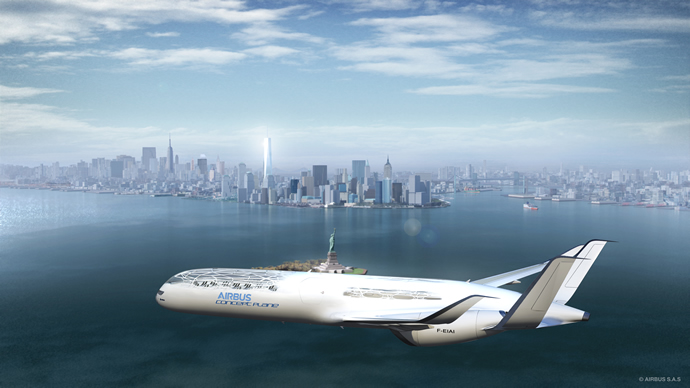In the last fifty years or more, the aviation industry and the passenger aircrafts have undergone huge transformation. The new generation aircrafts are faster, bigger and offer extremely pleasant flight experience and the Airbus A380 is one of the finest examples of it. But in the last half-a-century, the basic structure and the foundation of aircrafts have remained the same and the future of aviation we see in the sci-fi flicks continues to be fiction or a distant dream. So what really is the future of aviation? We have had concept designers give us a clue like the AWWA Sky Whale Concept, but we are all aware that they are more of fantasies than reality, but now Airbus has revealed what it believes would be the future of flying in 2050.
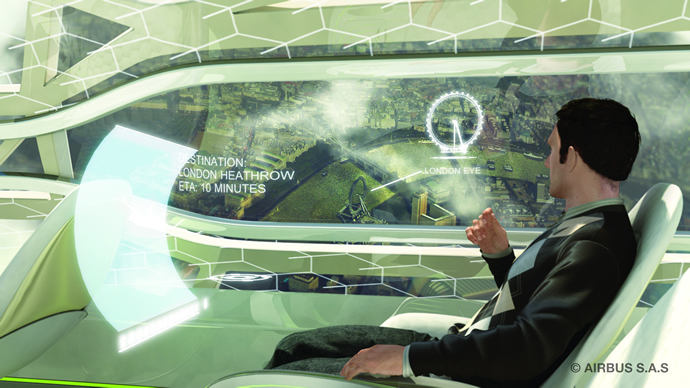
The makers of Airbus A380, considered to be the best commercial jet in the world currently, predicting what air travel will be like in 2050 revealed that planes of the future will have zones dedicated to relaxing and playing games, panoramic windows and seats that collect our body heat to power in-cabin features. Airbus said passengers will be able to relax in massaging seats that also serve drinks and vitamins autonomously and offer either a sea breeze or a scent of fresh pine. The planes will also feature sound showers that will ease passengers into sound sleep, snug in the warm embrace of special shades to keep out the light.
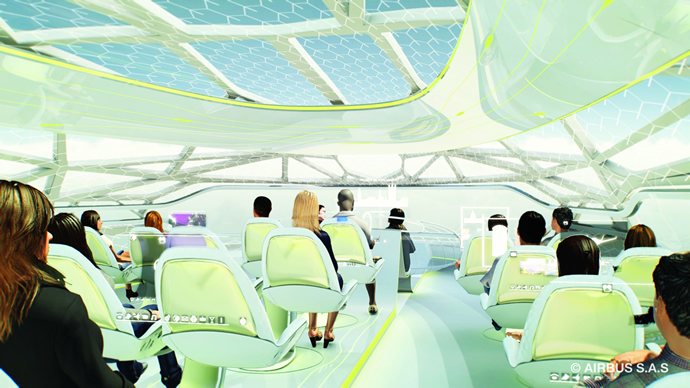
In the current commercial jets, we have small windows to peek outside for a view, but in future the jets will have a viewing area on the upper deck with panoramic windows, which can become transparent at the wave or a hand or remain opaque in certain areas thanks to an integrated neural network which can detect and respond to the specific needs of each passenger. Even the fittings and furnishings on the jet will take care of their own cleaning and repairs achieved through dirt repellent coatings and self healing covers.
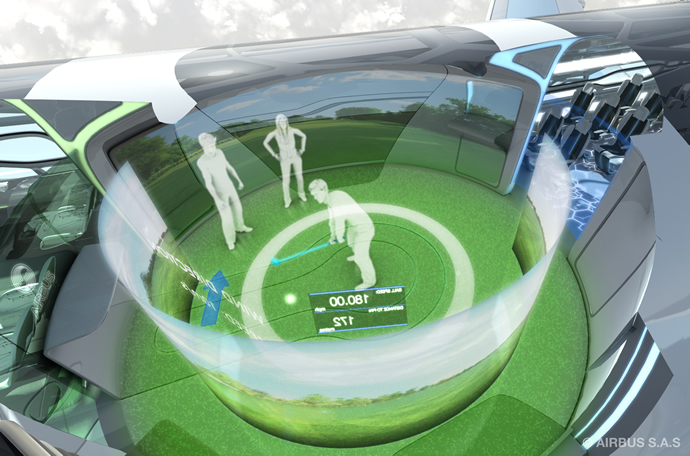
On the aircraft the social areas like the bars will also be more accessible while pop-up pods will offer more private spaces that can be used for anything from business to private needs. Airbus also predicts that it will have features like virtual shopping wall which will project clothes directly on to passengers and the virtual gaming wall will let tennis, baseball and even golf fans keep busy. According to Airbus research, every flight in the world could on average be around 13 minutes shorter, saving around nine million tones of excess fuel annually, which equates to over 28 million tones of avoidable CO2 emissions and a saving for passengers of over 500 million hours of excess flight time on board an aircraft. This will make air travel not only cheaper, but more efficient, safer and much more exciting. Check out the video and the concept renderings after the jump.
[Airbus]
